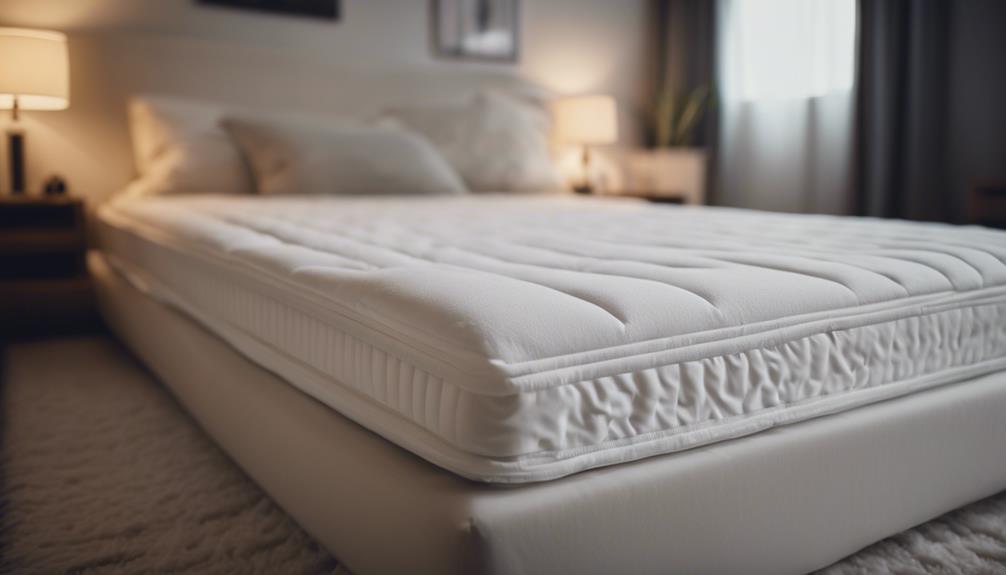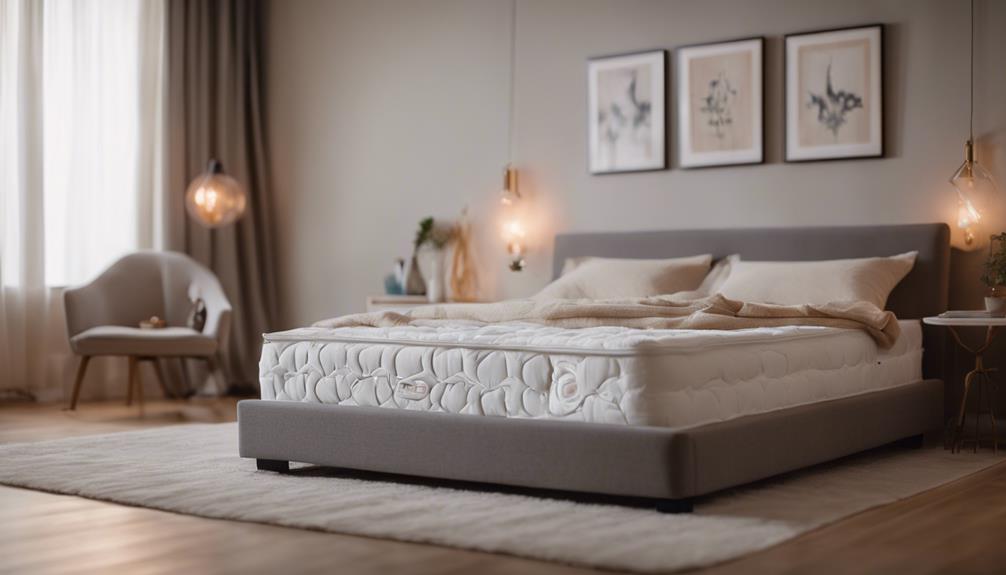Heated mattress pads are beneficial for arthritis, offering safety, warmth, and gentle heat therapy. These pads help relax stiff joints, improve circulation, ease discomfort, and enhance sleep quality. When choosing one, consider adjustable heat settings, safety features, and hypoallergenic materials. Before use, consult your healthcare provider, inspect regularly, and follow manufacturer guidelines for safety. To alleviate pain, use the pad on a low setting before bedtime, pair with suitable bedding, and provide targeted heat therapy. Look for UL-tested products and replace damaged pads promptly. These tips can make a significant difference in arthritis management and sleep quality.
Key Takeaways
- Heated mattress pads offer consistent warmth for arthritis relief.
- They improve circulation, reduce inflammation, and promote mobility.
- Adjustable settings cater to individual comfort and safety needs.
- Soft, hypoallergenic materials ensure comfort for sensitive skin.
- Consult healthcare provider before use for personalized recommendations.
Benefits of Heated Mattress Pads for Arthritis
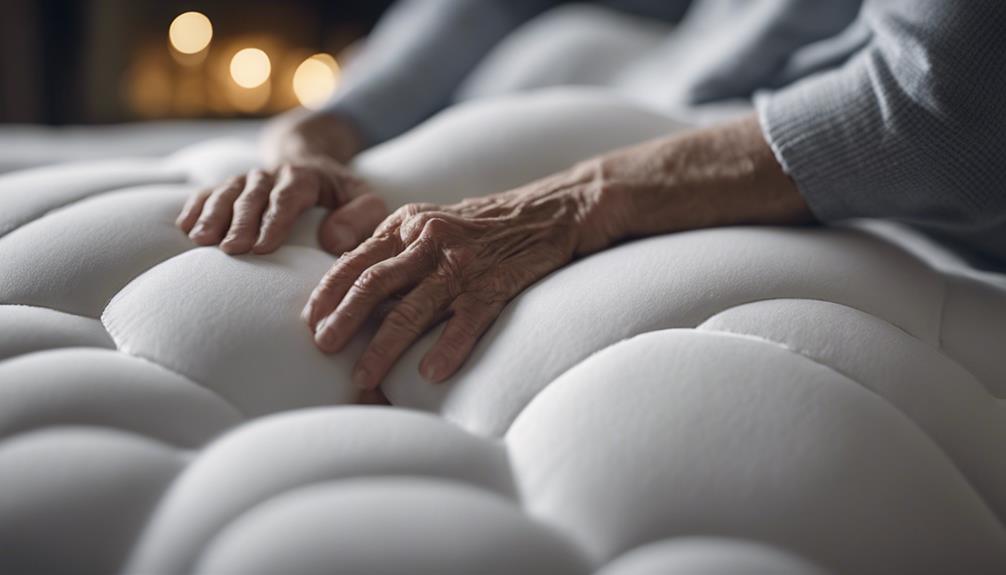
Heated mattress pads provide a guarantee of safety and peace of mind for arthritis sufferers by maintaining consistent warmth throughout the night to help soothe pain and stiffness. The gentle heat therapy offered by a heated mattress pad can be particularly comforting for individuals with arthritis, aiding in reducing discomfort and promoting relaxation for better sleep quality. The use of a quilted cotton heated mattress pad can elevate the overall comfort level for those experiencing arthritis-related back pain, offering a soft and supportive surface for rest.
Furthermore, the adjustable heat settings on heated mattress pads allow individuals to personalize their experience, tailoring the level of warmth to their specific needs. This feature is especially advantageous for arthritis patients, as it enables customized heat therapy to target areas of pain and stiffness effectively. Additionally, the auto shut-off function on some heated mattress pads guarantees safety and peace of mind, particularly for those who may forget to turn off the pad before sleeping. This combination of comfort, customization, and safety makes heated mattress pads a valuable tool for managing arthritis symptoms and improving overall quality of life.
How Heated Mattress Pads Relieve Pain
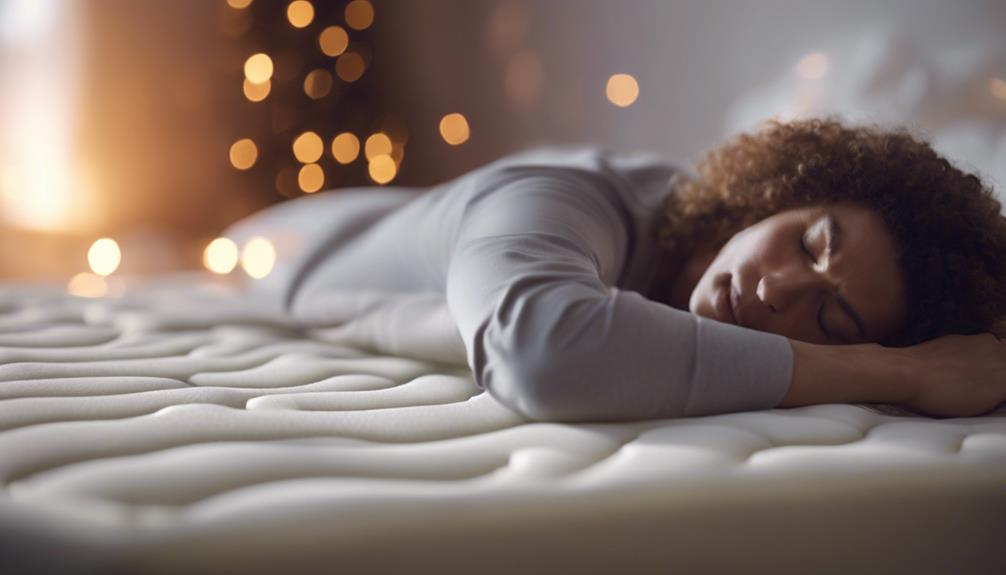
When seeking relief from arthritis pain, utilizing a heated mattress pad offers consistent warmth to relax stiff joints and muscles. Heated mattress pads can help improve circulation by delivering more oxygen and nutrients to affected areas, which can aid in reducing inflammation in arthritic joints.
The gentle heat provided by these pads eases discomfort, promoting mobility and flexibility. Additionally, the therapeutic benefits of heated mattress pads extend to enhancing sleep quality. By maintaining a comfortable temperature throughout the night, these pads can help reduce nighttime joint stiffness, allowing for a more restful and uninterrupted sleep.
Factors to Consider When Choosing
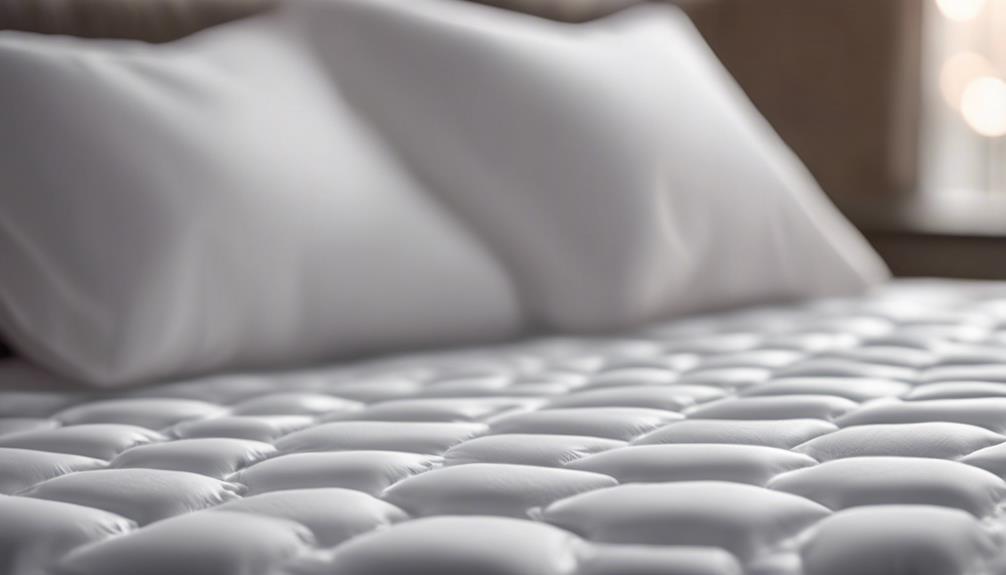
Considering various factors when selecting a heated mattress pad for arthritis can greatly enhance comfort and effectiveness in managing pain and stiffness.
When choosing a mattress pad for arthritis relief, it's important to look for features that cater to the specific needs of individuals with arthritis. Opt for mattress pads with adjustable heat settings, allowing you to customize the warmth level to suit your comfort and symptom management requirements. Safety features such as automatic shut-off mechanisms are vital for peace of mind during use, especially for those with certain health conditions.
Additionally, prioritize mattress pads made from soft, hypoallergenic materials to guarantee comfort for sensitive skin often associated with arthritis. Checking for certifications like UL testing can ensure that the pad meets safety and quality standards.
Tips for Using Heated Mattress Pads

Using a heated mattress pad on a low setting before bedtime can help relax stiff muscles and reduce morning stiffness for individuals with arthritis. Electric mattress pads are designed to provide targeted heat therapy, soothing arthritis discomfort and improving joint flexibility.
When using a heated mattress pad, make sure it includes safety features like auto shut-off and adjustable heat settings to prevent overheating and guarantee comfort during the night. Properly pairing the heated mattress pad with suitable bedding and practicing good sleep hygiene can further enhance overall sleep quality and pain management for arthritis sufferers.
Consulting with a healthcare provider before incorporating a heated mattress pad into your routine is essential to confirm its safety and benefits align with your specific arthritis condition. By following these tips and utilizing the heat therapy provided by a heated mattress pad, individuals with arthritis can experience increased comfort and improved sleep quality.
Precautions and Safety Concerns
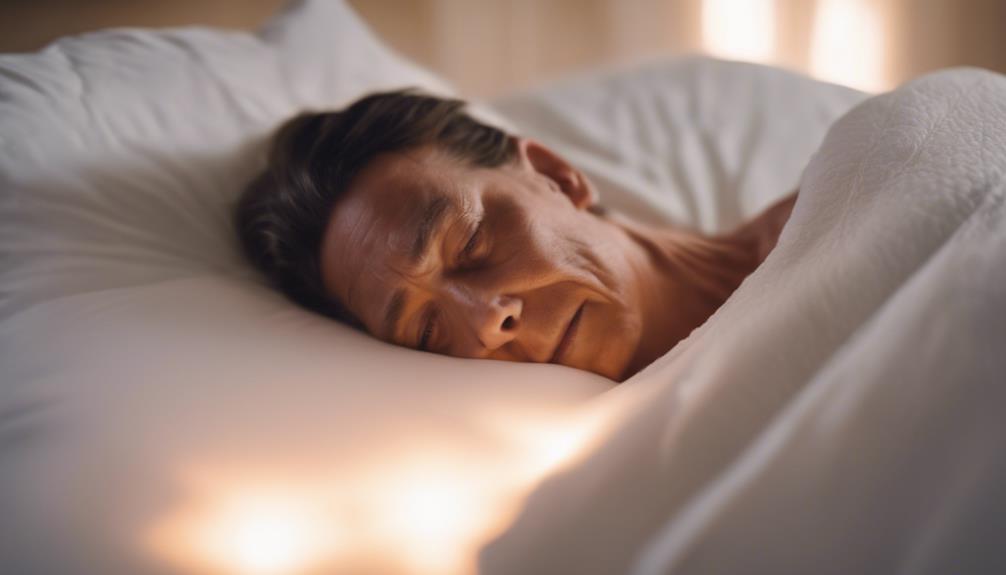
For safe usage of heated mattress pads for arthritis relief, it's essential to take precautions and safety concerns such as using UL-tested products and following manufacturer guidelines.
When using heated mattress pads, always make sure they're certified by Underwriters Laboratories (UL) for safety. It's important to carefully regulate the temperature settings according to the manufacturer's instructions to prevent skin irritation or burns.
Additionally, regularly inspect the pad for any signs of damage and replace it if needed to avoid safety risks for arthritis patients. Consulting with a healthcare provider before incorporating a heated mattress pad into your arthritis treatment plan is highly recommended to ensure it's suitable for your specific health needs.
Frequently Asked Questions
Is It Healthy to Sleep on a Heated Mattress Pad?
Sleeping on a heated mattress pad can be beneficial for maintaining warmth and comfort during sleep. The consistent heat can help promote relaxation and alleviate muscle tension.
However, it's important to use caution and make sure the heated mattress pad has safety features like auto shut-off.
Monitoring the temperature and making sure it's not too hot is key to a healthy sleep environment with a heated mattress pad.
Is a Heat Pad Good for Arthritis?
Heat pads are beneficial for arthritis as they soothe stiff joints and muscles, increasing blood flow to reduce pain. A heated mattress pad can provide consistent warmth overnight, aiding arthritis symptoms. It's a non-invasive, drug-free method for managing discomfort. Consult a healthcare provider to determine if this option aligns with your treatment plan.
This therapy offers relief by promoting relaxation and soothing affected areas.
Are Heated Mattress Pads Good for Back Pain?
Heated mattress pads are effective for back pain relief, offering soothing warmth that relaxes muscles and improves circulation. The consistent heat can reduce stiffness, increase flexibility, and enhance comfort during sleep.
Adjustable settings allow personalized heat levels for targeted relief. These benefits make heated mattress pads a great choice for managing back pain, providing overall comfort and quality rest.
What Is Better, a Heated Blanket or a Heated Mattress Pad?
When comparing a heated blanket to a heated mattress pad, the choice depends on individual needs. Heated blankets offer portability and versatility, suitable for various settings.
On the other hand, heated mattress pads provide consistent heat from underneath, ensuring even warmth distribution throughout the night.
For those seeking targeted relief and stable heat for conditions like arthritis, a heated mattress pad may be a better choice.
Conclusion
To sum up, heated mattress pads can be a beneficial tool for managing arthritis pain. They offer soothing warmth to help alleviate discomfort and improve sleep quality.
When selecting a heated mattress pad, consider factors such as temperature settings and safety features. Remember to follow usage tips and precautions to guarantee a safe and effective experience.
As the saying goes, 'An ounce of prevention is worth a pound of cure.'



